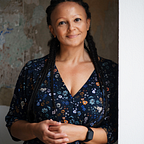The Science of Aging
In the last 2 weeks, I’ve thought a lot about the effects and consequences of aging.
I’ve been visiting my aging father. He’s now 82 years old, getting weaker and showing signs of dementia.
Since the beginning of time, people have dreamed of longevity and eternal life. Recently, we’ve made great strides in understanding the causes of aging and death.
Scientists have recently successfully turned back the clock of aging skin cells by 30 years. The results of this experiment could be the beginning of treatments to undo the ravages of time.
Other scientists have shed light on how the rate of somatic mutations influences the lifespan of different species. Controlling the effect of mutations could allow us to live a much longer life in the future.
But we shouldn’t worry too much about the duration of our lives without thinking of how healthy we will be in old age. Make sure to focus on achieving long health instead of long life.
While we’re waiting for scientists to unlock the tools for a long healthy life, try yoga to protect you from hip fractures and use gentle exercise to conserve your memory function.
Happy Sunday!
If you’re not a medium member yet, maybe you’d like to sign up through my referral link. If you do, I’ll make a little money off my writing. Or buy me a coffee. Both would make me happy, so thank you in advance 🙂
